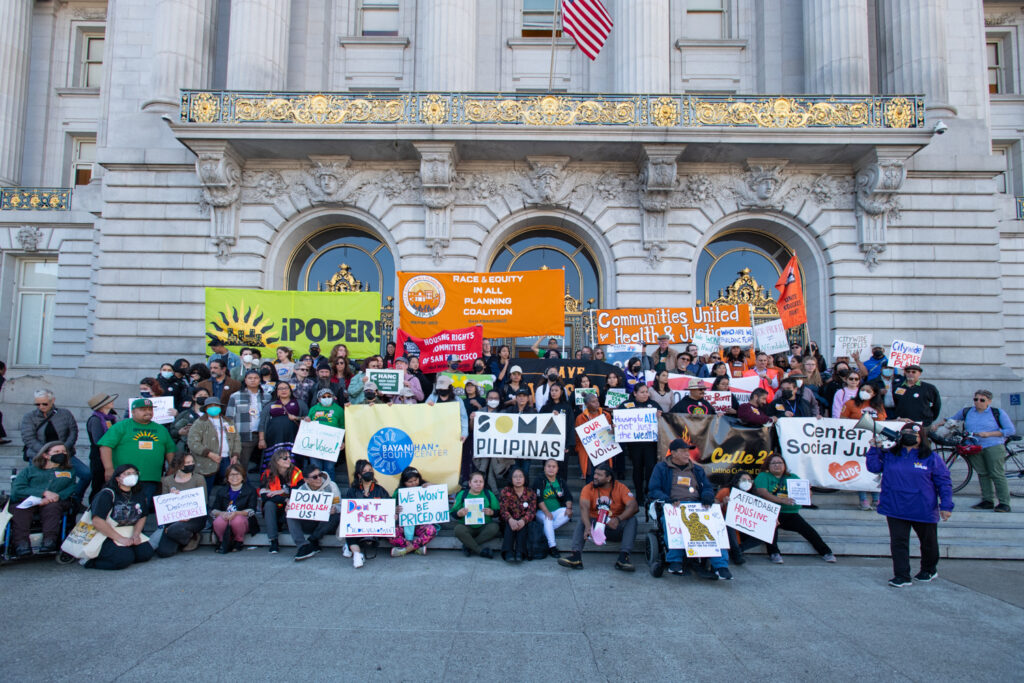San Francisco could eliminate all affordable-housing requirements for developers, seriously endangering the viability of the city’s Housing Element—and most market-rate projects still wouldn’t be feasible in today’s market, a new study shows.
The study, commissioned by the city’s economist and conducted by an outside real-estate firm, is the latest evidence that the state’s housing mandate, which says San Francisco needs 84,000 new units in the next eight years, is little more than a fantasy.

The report was presented to the Inclusionary Housing Technical Advisory Committee, a group of developers and affordable housing experts that meets on a regular basis to discuss the city’s requirements for market-rate developers to include below-market-rate units in their projects.
The study, which you can see here (or at least, you can see the presentation notes) analyzed the financial feasibility of both market-rate apartments and for-sale condos, given the current cost of land, permitting, affordable housing fees, and construction.
The Chron’s article on the study suggests that affordable housing fees are the main reason nothing is getting built:
San Francisco’s quotas for affordable-housing units in new construction projects are a major factor making the vast majority of them economically unfeasible, according to a study that strikes at the heart of city housing policy.
But when you read the study in detail, that’s not what it shows. Even if the inclusionary requirements were scrapped entirely, most of the prospective projects still don’t pencil out, which is what one developer is quoted as saying:
We’re so underwater here, I don’t know what I could be saying to be productive,” said Eric Tao, who reviewed the analysis two weeks ago with fellow members of the Inclusionary Housing Technical Advisory Committee. Based on the study, prepared by a real estate investing firm, “the city should be paying us developers to build housing,” said Tao, managing partner of developer L37 Partners, during the review. “I mean, it’s ridiculous.”
In other words, forget the affordable housing: Without city subsidies, very few of the market-driven projects are going to work.
We can rezone. We can cut bureaucracy and make housing permits “by right.” It won’t matter. SB 9 is a failure.
Help us save local journalism!
Every tax-deductible donation helps us grow to cover the issues that mean the most to our community. Become a 48 Hills Hero and support the only daily progressive news source in the Bay Area.
I asked Egan if I was right, that the data showed market conditions, even without city requirements, were preventing new housing.
“That’s what the data is showing given the way the market is today,” he told me. “The RHNA target is about 10,000 units a year for 8 years, and according to Planning the city has never built more than 5,000 in a single year. So consistently more than doubling our maximum for 8 years would be challenging in the best of times, which these are not.”
And I don’t seriously believe that anyone at City Hall is ready to give taxpayer cash to underwrite the profits of private developers (although I’ve been wrong before).
I reached out to Fernando Marti, who is a longtime affordable housing advocate and former co-director of the Council of Community Housing Organization, and a member of the Task Force.
His response:
Even if we removed all inclusionary, 100 percent market-rate projects are still infeasible, except for lowrise and midrise condos. … The most negative land residual is for rental highrises. Those only make sense when the tech industry is booming, and/or international investors are looking for piggy banks to park their capital.
He noted that:
The analyses assume profit return “targets” that are fixed. This may or may not be a reasonable assumption but it’s important to be clear that one of the only variables in all this that is totally fixed is developer profits. The policy dialogue should keep that in mind.
The Housing Element is important. Right now, it’s a joke.
When it comes before the supes, I’d love to see someone ask the Mayor’s Office and City Planning a simple question:
Is there any reasonable, even remotely possible scenario under which developers in today’s market can meet the goals of 84,000 housing units, 46,000 of them affordable?
And if there isn’t, why are we approving a plan that is based on fantasy and will never happen? Shouldn’t we be creating a real plan, that involves real investment in non-market housing?
I think it’s time to get an answer.




